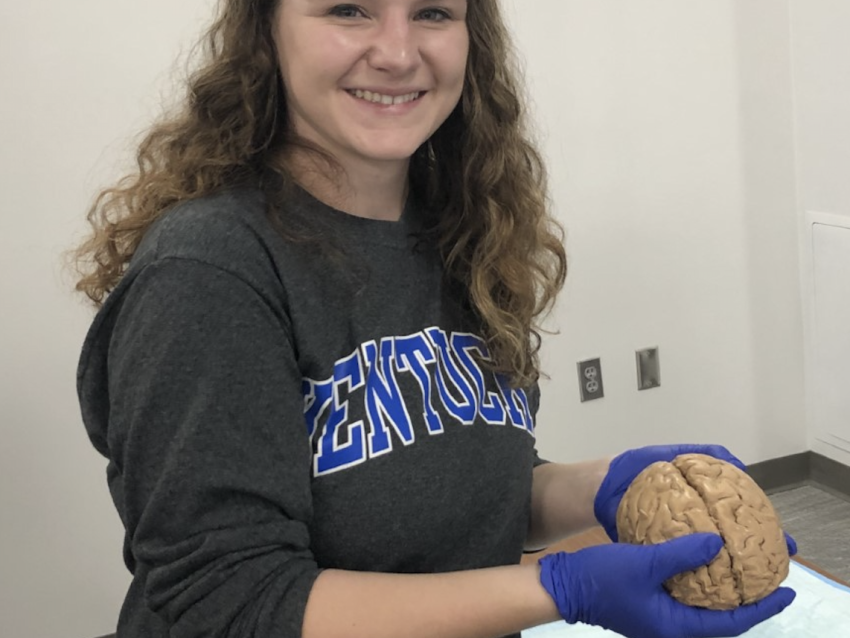
Summer Research Fellow Spotlight Grace Markowski
"Persons who are sleep deprived experience difficulties in self-regulation, perhaps because of enhanced reactivity of the amygdala and decreased connectivity between the amygdala and frontal cortex. However, there is a lack of research on whether these neurological alterations may impact autonomic stress response systems. The autonomic nervous system (ANS) is part of the peripheral nervous system, and it regulates the activity of different bodily systems in order to meet the demands of the environment. There has been limited research on associations between sleep and ANS functioning. Several prior studies indicate that there are associations between sleep and ANS functioning in children. Findings indicate that better sleep is related to ANS functioning that supports rest and digest states rather than fight or flight states. However, relatively few studies have been conducted, especially with regard to the sympathetic branch of the ANS, or either branch of the ANS responding to stress. This study will address these gaps in research."
Q: How did you first get interested in undergraduate research at UK?
A: "During my freshman year, I was in the STEMCats LLP and they had research opportunities already during my second semester. Afterwards, this interest inspired me to apply for a research assistant position in my mentor's research laboratory in developmental psychology, which I have been helping out with since then."
Q: How long have you been engaged in undergraduate research?
A: "I have been involved with undergraduate research for three semesters out of my four at UK so far."
Q: Describe what a typical day of remote summer research activity looks like for you. How does this differ from your pre-COVID research activity?
A: "Since I cannot be in my mentor's research lab, I have to do research on my own time during the day. This includes reading current research articles to better understand what I want to include in my research project and acquiring data from the lab through email from both my mentor and my lab's graduate student, Kyle. Eventually, I will be spending my day in SPSS to look at this data and pick out the information that is most important for my research project on the effect that stress and environment can have on a child's sleep quality, particularly looking at the functioning of their autonomic nervous system. While I can't be in the lab yet as I would have done before quarantine began, I thankfully can do much of the same at home with help, of course."
Q: What has been the most exciting aspect of your research so far?
A: "I am excited to take on my own project and decide what I would like to look at, whereas in the past I have mostly worked with many others on a subject that has already been chosen for us. It is exciting to have the opportunity to take an idea that I have and develop it into a professional product that will be important going forward to show how my interest in research can take me into graduate school and my future career."
Q: What advice would you give to other UK students thinking about doing research?
A: "I would suggest that if a student is interested in research at all, talk to a professor that has research you are interested in. Talking to professors that run a lab helps so much, as they can explain how your interests can line up with their research or refer you to another researcher that might suit you more. Also, don't be afraid to take a chance on researching something you might not know much about. I started off wanting to research the effects on brain disorders in the elderly but since my mentor is a developmental psychologist, I am now interested in pursuing developmental psychology as well and doing research with children."
The UK Office of Undergraduate Research's Summer Research & Creativity Fellowship program provides undergraduates with the opportunity to study in a wide variety of disciplines while doing intensive and self-directed research under the supervision of a faculty mentor.